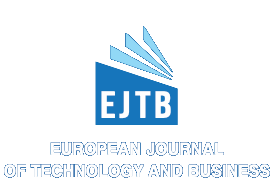As a condition of agreeing to assess the manuscript, all reviewers undertake to keep submitted manuscripts and associated data confidential, and not to redistribute them without permission from the journal. If a reviewer seeks advice from colleagues while assessing a manuscript, he or she ensures that confidentiality is maintained and that the names of any such colleagues are provided to the journal with the final report. By this and by other means, ejtb endeavours to keep the content of all submissions confidential until the publication date. Although we go to every effort to ensure reviewers honour their promise to ensure confidentiality, we are not responsible for the conduct of reviewers.
Reviewers should be aware that it is our policy to keep their names confidential, and that we do our utmost to ensure this confidentiality. Under normal circumstances, blind peer-review is protected from legislation. We cannot, however, guarantee to maintain this confidentiality in the face of a successful legal action to disclose identity in the event of a reviewer having written personally derogatory comments about the authors in his or her reports. For this reason as well as for reasons of standard professional courtesy, we request reviewers to refrain from personally negative comments about the authors of submitted manuscripts.
Consistent with the policy of blind review, the author(s)’ name(s) should be listed only on a cover page that will be removed before the manuscript is sent to the reviewers. References to the author(s)’ previous work should be listed as Author(s) in the citations and references.
All manuscripts will be judged on the significance of the content, the inclusion of a valid discussion of implications for practice in the broader field of education, social and humanity sciences, and the clarity and cohesion of the text.
Acknowledgment of cooperating scholars or professionals and funding sources should be added to the end of the manuscript.
Frank comments about the scientific content of the manuscripts, however, are strongly encouraged by the editors. This journal employs double blind reviewing, where both the referee and author remain anonymous throughout the process. Reviewers are matched to the paper according to their expertise. Reviewers are asked to evaluate whether the manuscript:
- is original;
- is methodologically sound;
- follows appropriate ethical guidelines;
- has results which are clearly presented and support the conclusions;
- correctly cites previous relevant work.
Initial Screening of Manuscripts
All manuscripts that are submitted to IJBT are initially screened by the Editorial Team for completeness and to determine if the manuscript meets the set criteria:
The manuscripts should be within the scope of the ejtb
The manuscripts should be of acceptable quality and in compliance with the ejtb’s Author Guidelines. Author(s) must use the Author’s Template to format their manuscript and submited in MS Word format Online.
Request Initial Revisions or Reject the Manuscript
The Editorial Board will decide on either to:
Send the manuscript out for double blind review
Request initial revisions prior to the double blind review process, or
Reject the manuscript
The initial screening result will be sent to the corresponding author(s) via email within a week.
Peer Review Process
The journal employs a double-blind peer review system, which is the most important aspect of the publication process. Each manuscript passing initial screening will be subjected to rigorous and anonymous peer-review by a minimum of two peer reviewers. Referees who review a manuscript remain unknown to the authors. The ejtb independent status ensures a submission acceptance rate based on merit and not favor, bias, or personal preference. Authors receive reviewers’ comments and recommendations from the editorial team. Usually, reviewers will complete their reviews within three to four weeks. The reviewers make a recommendation to accept, revise, or reject a manuscript based on the scientific merit and technical quality of the studies reported. Reviewers have four options: acceptance without revisions, acceptance with minor revisions, acceptance with major revisions, or rejection. If both reviewers accept the manuscript (regardless of the amount of revisions required), the publication process proceeds, provided of course that such revisions are applied by the proponent/s. If there is one rejection and one full acceptance, a third review is required.
Authors are required to revise the manuscripts according to the comments of the reviewers .Upon resubmission, the editorial team will decide whether to return the manuscript to the reviewers for additional review, accept, recommend modification(s) or reject.
After the revision process, qualified manuscripts will be accepted for publication. The acceptance letters will be sent to the corresponding authors within one week.
No publication fees, Open Access Journal
No publication fees apply. The manuscript(s) submission(s), peer review process and publications in the ejtb are free. ejtb is an open access journal. Readers do not have to pay subscription fee to access all the published research papers.
Proofreading and Publication Notification
Proofreading is the final stage of the editing process. The ejtb Editorial Board will conduct thorough proofreading process for all the accepted manuscripts. The author(s) get the chance of checking their research paper before publishing. The proofs is sent to the author(s) and should be returned within three days. If the author(s) do not reply within the one week, the Editorial Board will consider the manuscript fit for publication. Author(s) will be notified via email as soon as their research paper is published on the IJIBS website and also stating the publication link..
